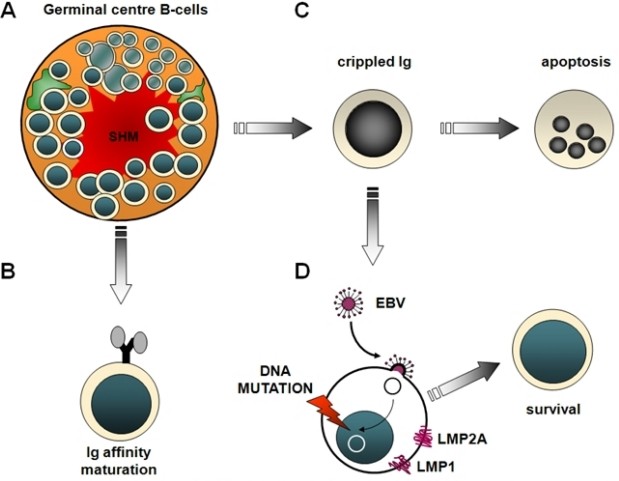Lymphoproliferative Disorders (LPDs)
Lymphoproliferative disorders (LPDs) present multiple challenges in diagnosis and therapeutics. With a focus on precision and efficiency, our company works tirelessly to provide clients with diagnostic and therapeutic development services tailored to meet their specific needs. Whether you are looking to explore new therapeutic options, validate a drug candidate, or navigate the complexities of commercializing a therapeutic, our team is here to guide you.
Introduction to Lymphoproliferative Disorders
Lymphoproliferative disorders (LPDs) encompass a diverse group of conditions characterized by the excessive production of lymphocytes, key cells of the immune system. These disorders present a challenge in medical diagnosis and treatment due to the varied nature of the conditions and their impact on the immune system. LPDs primarily affect individuals with compromised immune systems, highlighting the intricate interplay between immune function and disease development.
 Fig. 1 Pathogenetic model of post-transplant lymphoproliferative disorders. (Capello, Daniela, and Gianluca Gaidano., 2009)
Fig. 1 Pathogenetic model of post-transplant lymphoproliferative disorders. (Capello, Daniela, and Gianluca Gaidano., 2009)Pathogenesis of Lymphoproliferative Disorders
The pathogenesis of lymphoproliferative disorders (LPDs) involves a multifaceted interplay of genetic, environmental, and immunological factors that disrupt normal lymphocyte homeostasis.
Genetic Factors
For example, X-linked lymphoproliferative disorder (XLP) is associated with mutations in genes such as SH2D1A and XIAP. These mutations impair the immune system's ability to regulate lymphocyte proliferation, leading to the development of LPDs.
Immunological Dysregulation
Immune dysregulation can predispose individuals to LPDs. Diseases that impair immune function, such as HIV infection or immunosuppressive therapy, create a favorable environment for the uncontrolled expansion of lymphocytes.
Viral Infections
Certain viral infections, notably Epstein-Barr virus (EBV), have been implicated in the pathogenesis of LPDs. EBV is known to infect B cells and can cause them to proliferate uncontrollably, leading to the development of lymphomas.
Dysregulated Signaling Pathways
Aberrant activation of signaling pathways involved in cell proliferation, survival, and differentiation is a hallmark of many LPDs. For example, dysregulation of the BCR and NF-κB pathways can promote uncontrolled lymphocyte proliferation and survival.
Therapy Development for Lymphoproliferative Disorders
The therapeutic development strategy for lymphoproliferative disorders (LPDs) aims to target the underlying mechanisms causing abnormal lymphocyte proliferation while minimizing adverse effects on the immune system. Several therapies are available for LPDs.
| Drugs | Types of Therapy | Targeted Diseases | Developmental Stage |
|---|---|---|---|
| Yescarta | CAR-T Cell Therapy | Diffuse Large B-cell Lymphoma (DLBCL), Primary Mediastinal B-cell Lymphoma (PMBCL) | Approved |
| Imbruvica | Kinase Inhibitor | Chronic Lymphocytic Leukemia (CLL), Mantle Cell Lymphoma (MCL) | Approved |
| Keytruda | Immune Checkpoint Inhibitor | Hodgkin Lymphoma, Primary Mediastinal Large B-cell Lymphoma (PMBCL) | Approved |
| Polatuzumab Vedotin | Antibody-drug Conjugate | Diffuse Large B-cell Lymphoma (DLBCL) | Approved |
| Tecartus | CAR-T Cell Therapy | Mantle Cell Lymphoma (MCL), Marginal Zone Lymphoma (MZL) | Approved |
| Adcetris | Antibody-drug Conjugate | Hodgkin Lymphoma, Anaplastic Large Cell Lymphoma (ALCL) | Approved |
Disclaimer: Protheragen focuses on providing preclinical research services. This table is for information exchange purposes only. This table is not a treatment plan recommendation. For guidance on treatment options, please visit a regular hospital.
Our Services
At our company, we are dedicated to delivering top-tier service support for the diagnosis and therapeutics development of rare lymphoproliferative diseases (LPDs). With expertise in developing in vitro and in vivo models, conducting preclinical drug research, and facilitating the commercialization of therapeutic medications, we stand at the forefront of innovation and progress in the medical field.
Types of Rare Lymphoproliferative Disorders
| A-D | |
|---|---|
| Adult T-Cell Leukemia/Lymphoma (ATLL) Anaplastic Large Cell Lymphoma (ALCL) Burkitt Lymphoma |
Chronic Lymphocytic Leukemia (CLL) Cutaneous T-Cell Lymphoma (CTCL) Diffuse Large B-Cell Lymphoma (DLBCL) |
| E-L | |
| Extranodal NK/T-Cell Lymphoma, Nasal Type Follicular Lymphoma Hairy Cell Leukemia |
Hodgkin Lymphoma Hemophagocytic Lymphohistiocytosis (HLH) Lymphoblastic Lymphoma |
| M-Z | |
| Lymphoplasmacytic Lymphoma Mantle Cell Lymphoma Marginal Zone Lymphoma Non-Hodgkin Lymphoma (NHL) |
Peripheral T-Cell Lymphoma Post-Transplant Lymphoproliferative Disorder (PTLD) Primary Mediastinal B-Cell Lymphoma Waldenström Macroglobulinemia |
Therapeutic and Disease Model Development Services
Our dedication to excellence motivates us to employ accurate models for conducting pharmacodynamic, pharmacokinetic (PK), and toxicology studies to guarantee the effectiveness and safety of therapeutics. If you are interested in our services, please feel free to contact us for more details and quotation information of related services.
Reference
- Capello, Daniela, and Gianluca Gaidano. "Post-transplant lymphoproliferative disorders: role of viral infection, genetic lesions and antigen stimulation in the pathogenesis of the disease." Mediterranean Journal of Hematology and Infectious Diseases 1.2 (2009).

